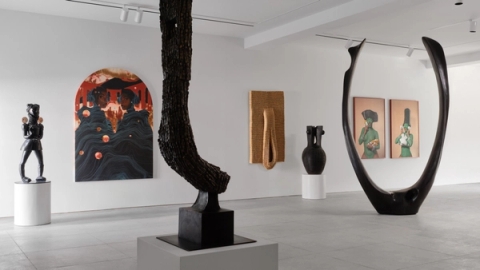My Enquiry (0)
No artwork has been selected.
Please choose an artwork to enquire.
Enquiry Submitted
Thank you for your enquiry and interest in our artists’ work. A member of the gallery team will respond shortly.
000%
18 May - 31 August 2024
Southern Guild Los Angeles is pleased to present ZANELE MUHOLI, an autobiographical panorama of the visual activist and artist as their creative practice evolves over time and across mediums.
Provocative and perceptive, in this presentation Muholi encourages their audience to question the world around them—wielding artwork that re-imagines self and re-envisions agency. What does it mean to exist in this time? How can individual and cultural trauma be recognized and transcended? In what ways can art serve as a catalyst for discussion of, education about, and advocacy for antiracism, gender expression, and reproductive health? In each portrait—literal or symbolic—they confront and celebrate their identification with Black and LGBTQIA communities in their native South Africa, empowering individuals from various geographies and generations to identify with and make space for presence, self-love, remembrance, and healing.
This exhibition features Muholi’s recent additions to their ongoing self-portrait series Somnyama Ngonyama alongside their newest work in bronze sculpture. Their artworks are inextricable from the specificity of their person—each series imprinting and asserting their ancestral history, personal experience, and individual trauma. Titled “Hail the Dark Lioness” in English, the photographs that comprise this body of work are a visual exploration of the Zulu term Somnyama,meaning Black, and Ngonyama, which is both the word for lion and their mother’s family name. These portraits are produced all around the world, where Muholi captures their form in complete solitude. Wrapped in cloaks made from hotel bed sheets, adorned with crowns made from clothesline pins, decorated with lipstick made from toothpaste and vaseline, these works serve as a simultaneous document and vision of self-embodiment—existing in and through the immediacy of the medium.
In making themselves their subject, Muholi offers a parallax gaze, one that empowers, rather than objectifies, their chameleon physique. Honoring their mother tongue and matriarchal lineage, these portraits express a web of relations that frame Muholi as an individual, a child, a grandchild, a sibling, a lover, a mind, a body, and a creative—unrestrained and ever-evolving.
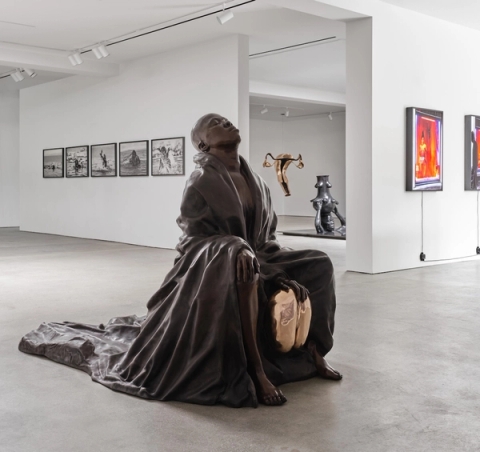
It is with this consciousness of biological origin that Muholi embarked on their sculpture works, creating visceral visualizations of their genitalia and reproductive organs. Existing in a nonbinary body, Muholi has experienced various conflicts in gynecological medicine, and aims to expose the misinformation disseminated in South Africa’s Black and Trans communities, which contributes to the perpetuation of taboos around subjects of gender and sexual variance. After being diagnosed with uterine fibroids, the artist reflected on the intersecting influences of their inherited genealogy and Catholic upbringing—considering how they were undereducated about pre-existing conditions and criticizing religion’s condemnation of sexual pleasure and queer identity.
Fabricated at a colossal scale, glistening bronze casts of their uterus and clitoris are juxtaposed with avatars of themselves in clerical robes—in one, bowing their head in solemn prayer, in another, reclining while stimulating their labia. In these works, sanctity is redefined—encouraging connection with and love for one’s unique body, advocating for self-exploration, medical literacy, and LGBTQIA-sensitive healthcare. For Muholi, “The uterus is life’s global signature, it is a passage that is common to all of us regardless of race, class, gender, sexual orientation and geographical location. It is a common space, it is like water – water is water, blood is blood, the womb is the womb, birth is birth…”
These works serve as a revolving portal between the artist, subject, and audience—an intimate communion with the inherent complexities of self, place, and body politic. Both through the vocabulary of black-and-white photography and bronze-cast sculpture, they have an ability to make the mundane regal, to make the anatomical monumental. With a practice that welcomes duality, shape-shifting, and subjectivity, their work has the ability to, at once, look back, stand present, and stride forward—conscious of a world that will only continue to provide new obstacles and inequalities to overcome, in their individual context and political consciousness. This exhibition offers a space where people of all ages can commune, observe, and share their impressions and experiences safely and without judgment—where each person is given space to uncover their particular resonance with Muholi’s ambitious and expansive practice.
ZANELE MUHOLI will be accompanied by the release of an eponymous artist monograph published by Southern Guild, capturing the personal depth and communal impact of this body of work. This is the first publication that will document Muholi’s sculptural oeuvre, featured alongside new and recent photography from their Somnyama Ngonyama series—in addition to seminal works from the artist’s archive. The catalogue will include scholarly essays and interviews that offer insight into their practice, particularly exploring the shift from the lensing of others to the lensing of self. Muholi’s own voice is a consistent presence in the monograph, offering intimate biographical accounts that have informed their creative journey and activist perspective.
On Tuesday, May 21, the gallery hosted a panel discussion entitled 'The Image and the Unflinching Gaze: Self-Produced Archives of Resistance', featuring Muholi in conversation with artist Catherine Opie and LACMA photography curator, Britt Salvesen. The event also served as a celebration for the launch of both Southern Guild’s monograph and Aperture’s recent release: Zanele Muholi, Somnyama Ngonyama, Volume II.
Artist
Works
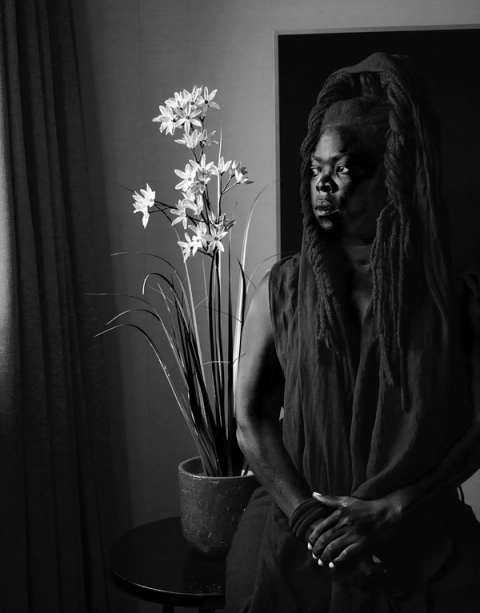
Zanele Muholi
Zenene, Room 523, Van der Valk Hotel, Liege, Belgium - Zanele MuholiBaryta print
35.4 x 23.6 in. | 92 x 62 cm
Edition of 8 + 2 AP
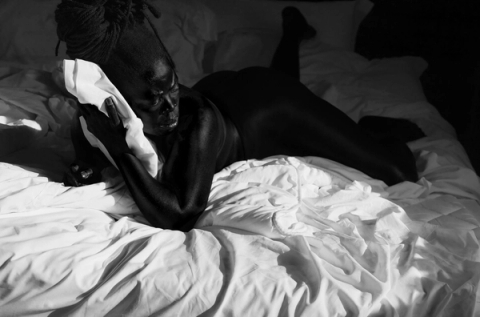
Zanele Muholi
Khayalami VII, Milan, Italy, 2023Wallpaper
Variable: max. width 200 cm | 13.1 ft.
Edition of 2, 1AP
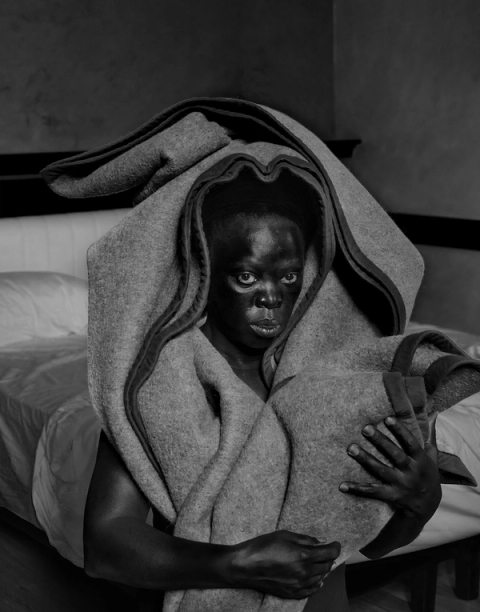
Zanele Muholi
Zenzele IV, Hotel Lombardia, Milan, Italy, 2023Baryta print
Image and paper size: 79 x 59 cm | 31.1 x 23.2 in.
Edition of 8 + 2 AP
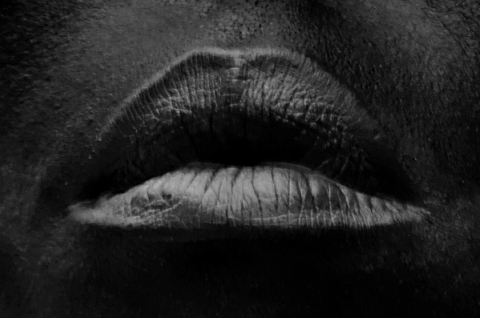
Zanele Muholi
Thula I, Adams Mission, 2023Baryta print
Image and paper size: 7.1 x 9.8 in. | 18 x 25 cm
Edition of 8 + 2 AP
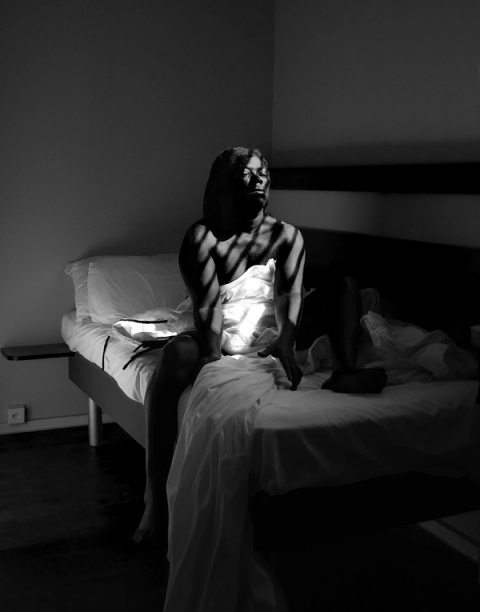
Zanele Muholi
Sibuzile II, Room 239, Ibis Budget, Luzern, Switzerland, 2023Baryta print
Image and paper size: 36.2 x 24.4 in. | 90 x 60 cm
Edition of 8 + 2AP
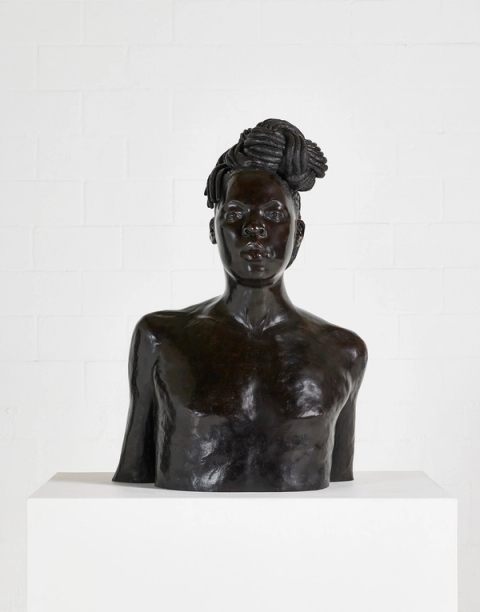
Zanele Muholi
Amandla (Power), 2023Bronze
46.5 x 20.9 x 33 in. | 118 x 53 x 84 cm
Edition of 3 + 2 AP
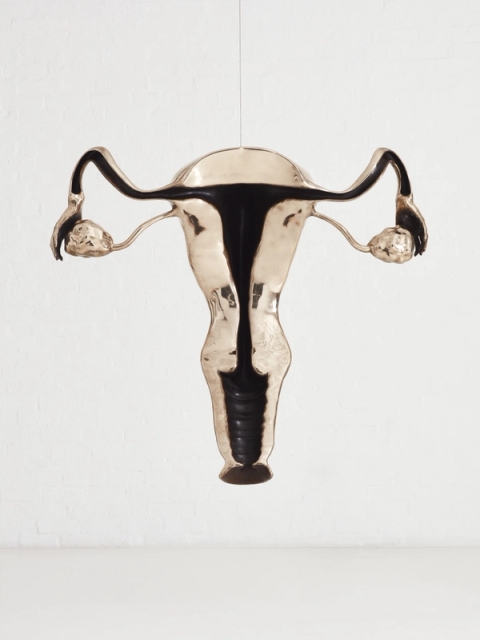
Zanele Muholi
Umphathi (The One Who Carries), 2023Bronze
53.1 x 61 x 24.4 in. | 135 x 155 x 62 cm
Edition of 3, 2AP
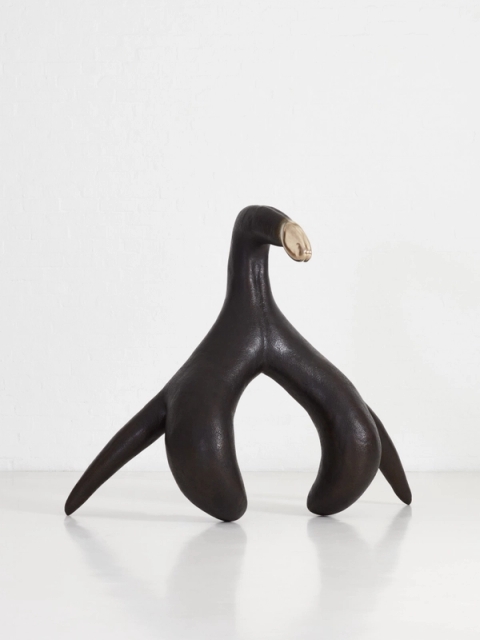
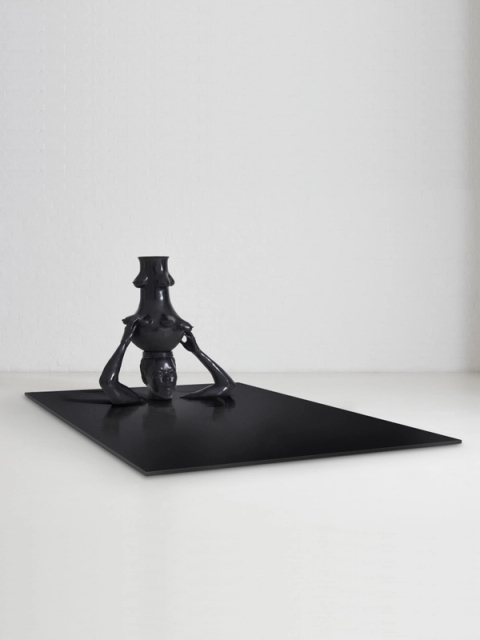
Zanele Muholi
Mmotshola Metsi (The Water Bearer), 2023Bronze
57.9 x 70.9 x 120.1 in. | 147 x 180 x 305 cm
Edition of 3, 2AP
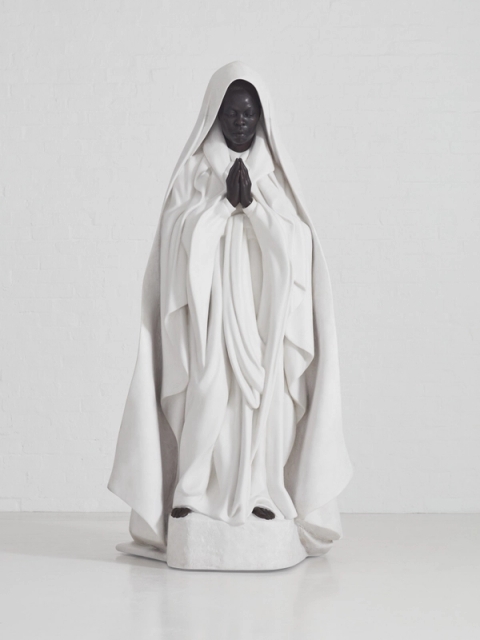
Zanele Muholi
Umkhuseli (The Protector), 2023Resin, marble dust, bronze
86.6 x 46.5 x 43.8 in. | 220 x 118 x 111 cm
Edition of 3, 2AP
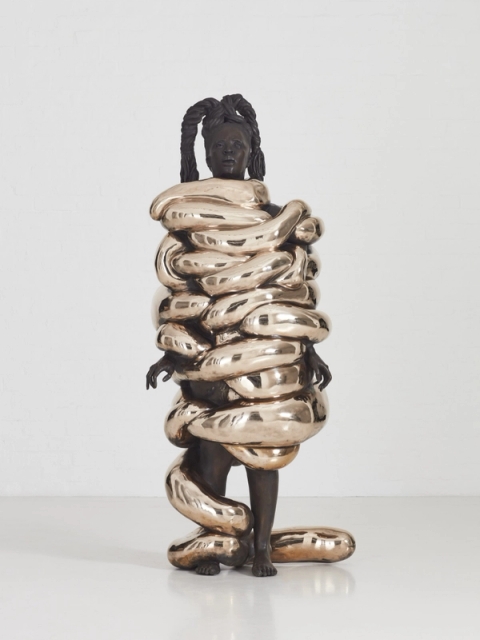
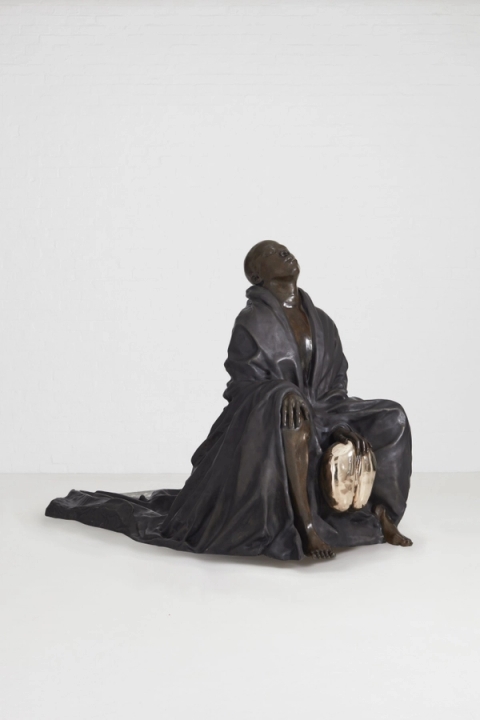
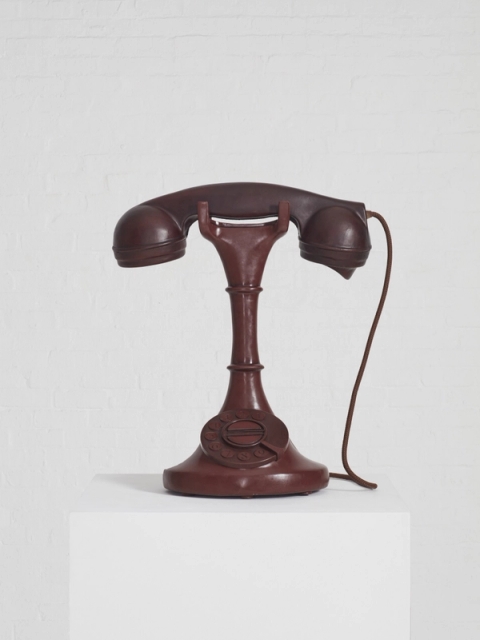
Zanele Muholi
Umemezi (State of Emergency), 2023Bronze, resin, leather, nylon cord
28.4 x 14.1 x 11.8 in. | 72 x 36 x 30 cm
Edition of 3, 2AP
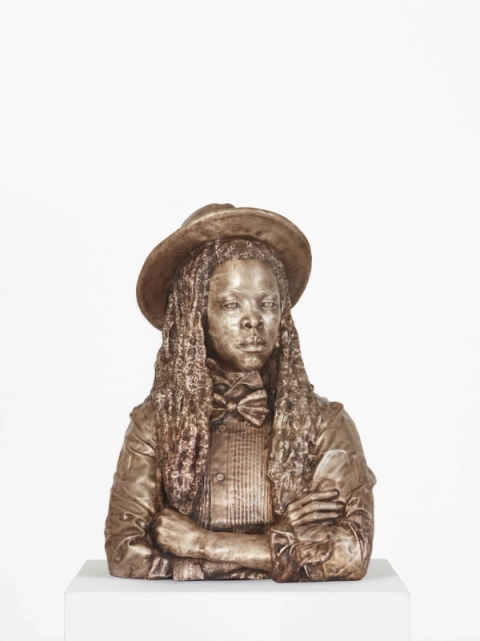
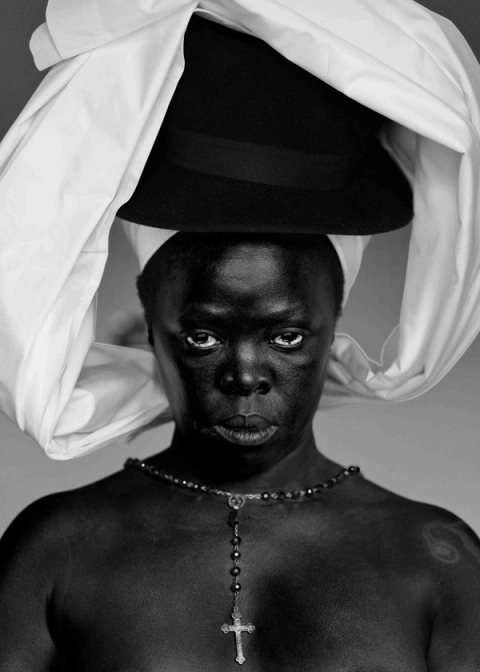
Zanele Muholi
Khayalami II, Room 120 Art Hotel Navigli, Milan, Italy, 2023Baryta print
Image and paper size: 27.5 x 19.6 in. | 70 x 50 cm
Edition of 8, 2AP
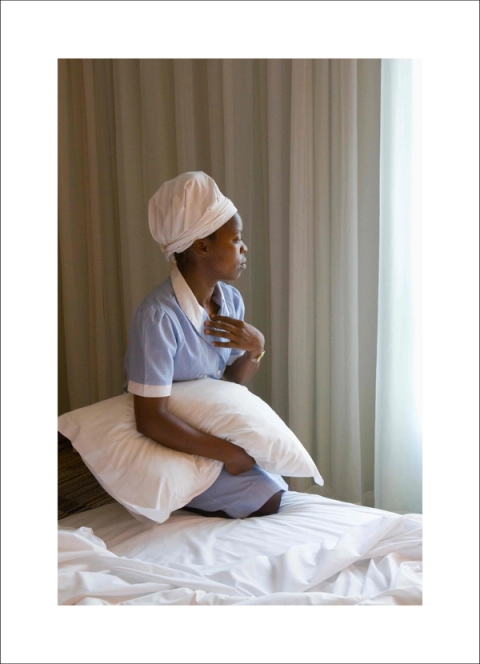
Zanele Muholi
Massa and Minah VI, Brazil, 2010Baryta print
Image size: 19.5 x 13.1 in. | 49.5 x 33.3 cm -- Paper size: 23.6 x 13.5 in. | 50 x 34.4 cm
Edition of 8, 2AP
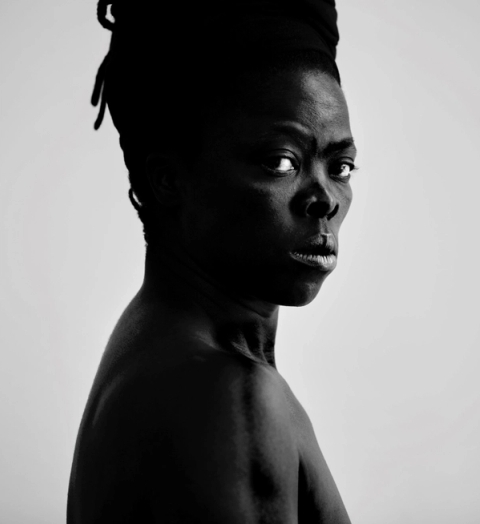
Zanele Muholi
Qhawe, Umbumbulu, KwaZulu-Natal, 2020Baryta print | Wallpaper
Variable - please enquire
Edition of 8, 2AP
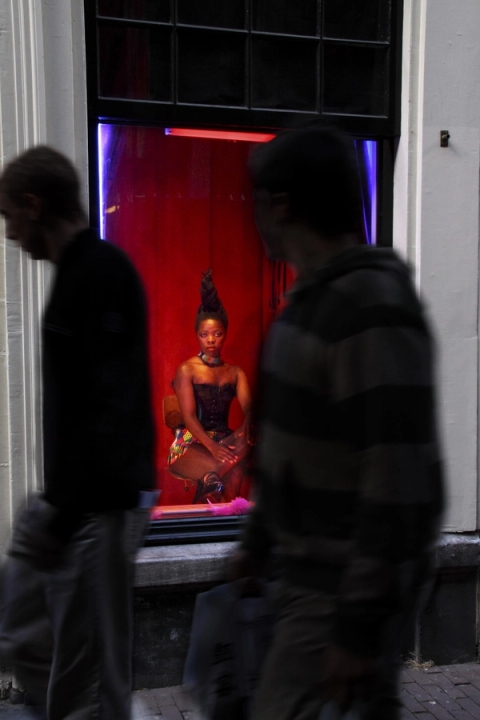
Zanele Muholi
Being (T)here, Amsterdam I (Revised), 2009 - 2023Lightbox
41.4 x 27.5 in. | 107 x 72 cm
Edition of 8, 2AP
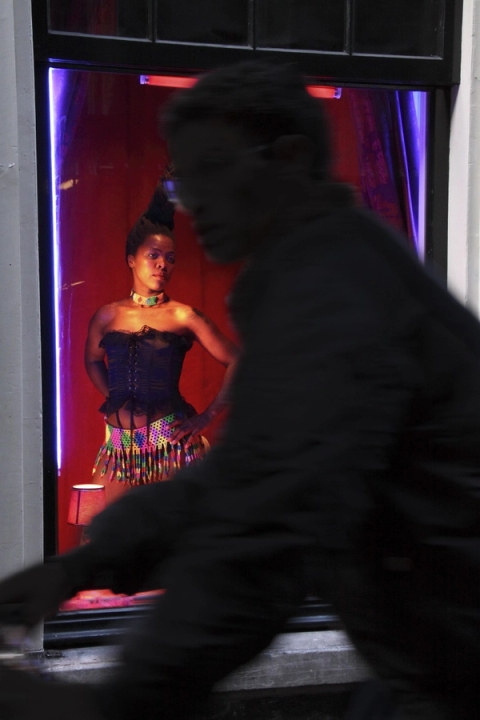
Zanele Muholi
Being (T)here, Amsterdam II (Revised), 2009 - 2023Lightbox
41.4 x 27.5 in. | 107 x 72 cm
Edition of 8, 2AP
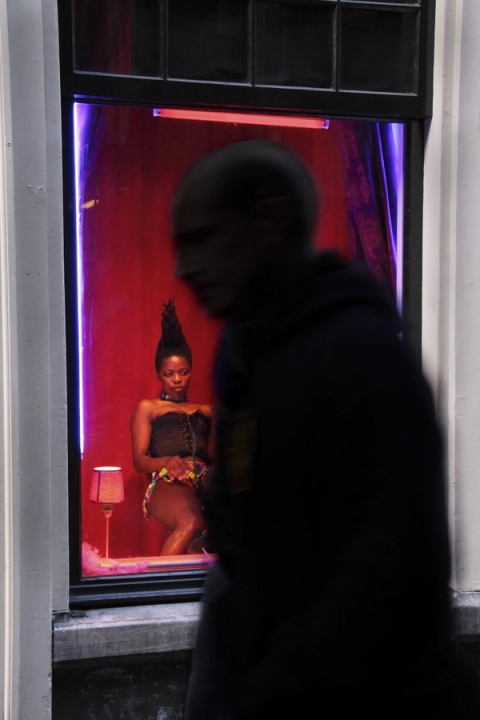
Zanele Muholi
Being (T)here, Amsterdam III (Revised), 2009 - 2023Lightbox
41.4 x 27.5 in. | 107 x 72 cm
Edition of 8, 2AP
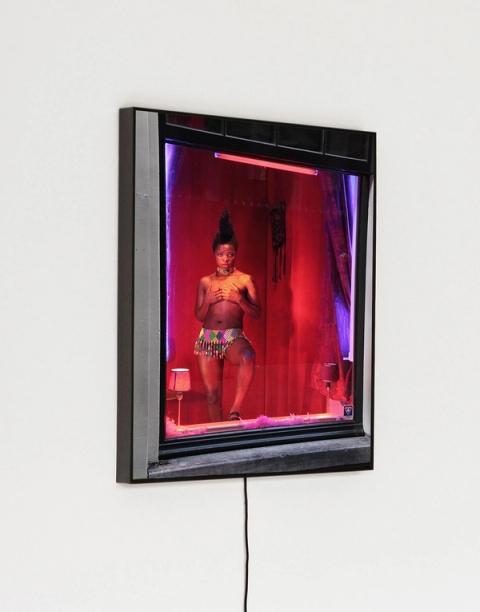
Zanele Muholi
Being (T)here, Amsterdam IV (Revised), 2009 - 2023Lightbox
42.13 x 28.38 x 3.5 in. | 107 x 72 x 9 cm
Edition of 8, 2AP
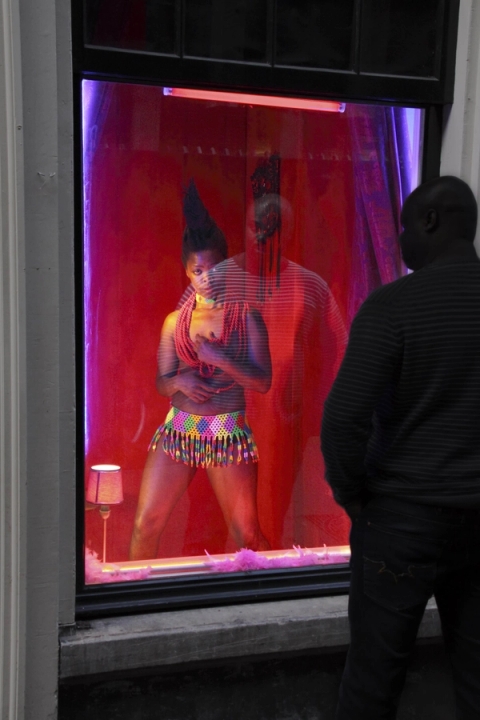
Zanele Muholi
Being (T)here, Amsterdam V (Revised), 2009 - 2023Lightbox
41.4 x 27.5 in. | 107 x 72 cm
Edition of 8, 2AP
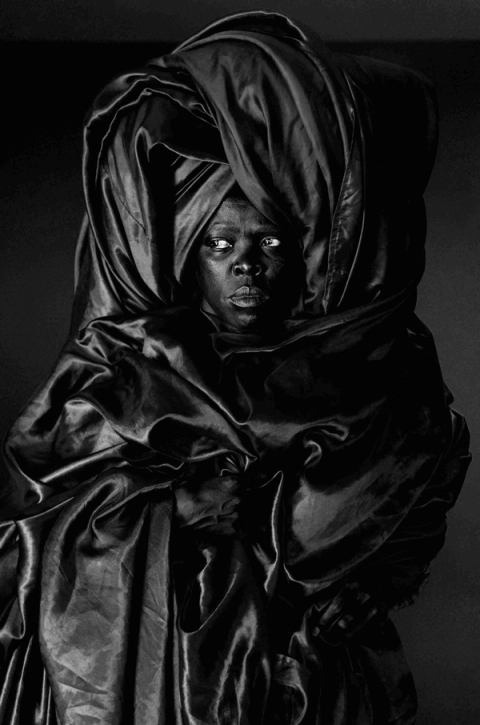
Zanele Muholi
Baveziwe I, Umhlanga, Durban, 2021Baryta print
Image and paper size: 31.5 x 20.9 in. | 80 x 53 cm
Edition of 8, 2AP
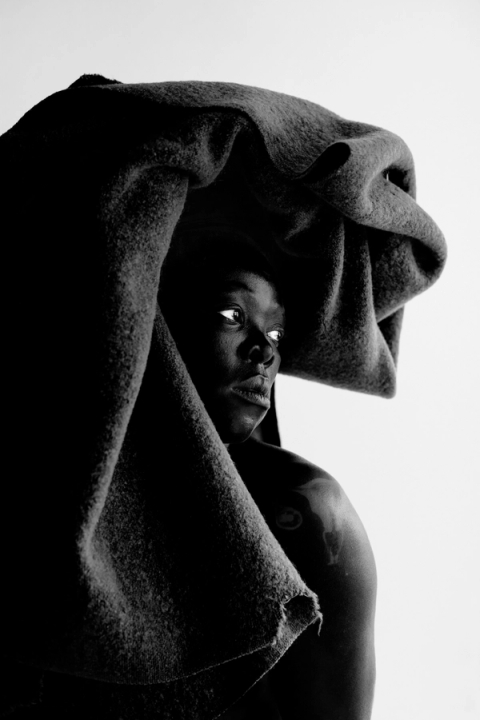
Zanele Muholi
Bonganini I, 3067 Washington St Home, San Francisco, 2022Baryta print
36.3 x 24.4 in. | 92 x 62 cm
Edition of 8, 2AP
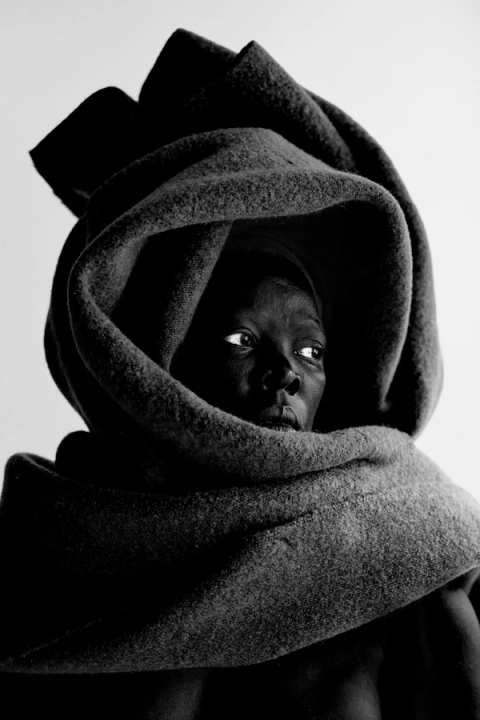
Zanele Muholi
Bonganini III, 3067 Washington St Home, San Francisco, 2022Baryta print
Image and paper size: 35.4 x 23.6 in. | 90 x 60 cm
Edition of 8, 2AP
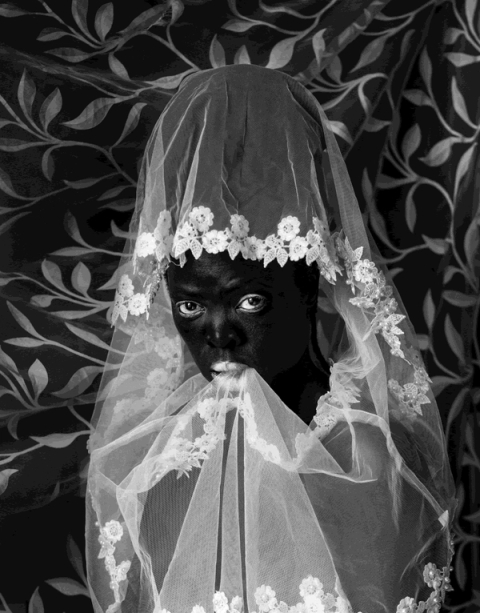
Zanele Muholi
Thatha konke I, Sheraton Hotel, Brooklyn, 2019Baryta print
Image and paper size: 27.2 x 21.3 in. | 69 x 54 cm
Edition of 8
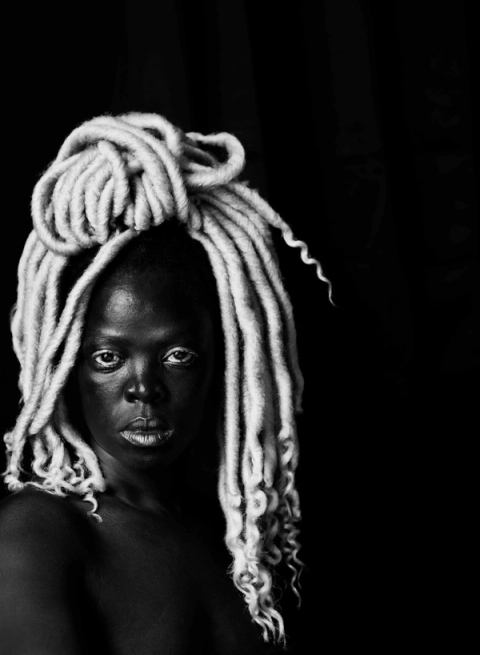
Zanele Muholi
Siyikhokonke, Sheraton Hotel, Brooklyn, 2019Baryta print
Image and paper size: 23.6 x 17.3 in. | 60 x 44 cm
Edition 8 of 8, 2AP
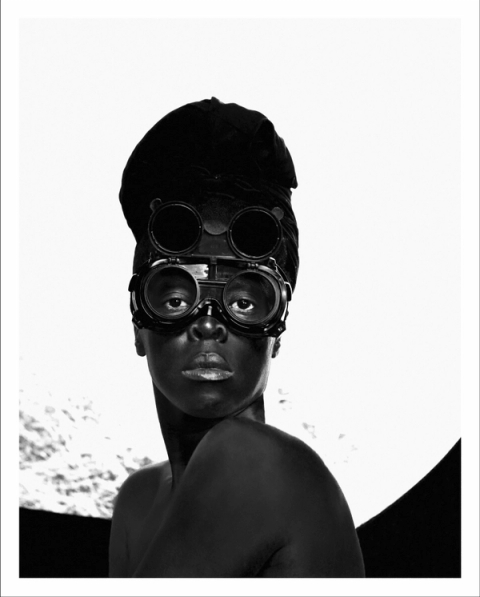
Zanele Muholi
Bonile III, The Decks, Cape Town, 2020Baryta print
Image and paper size: 23.5 x 18.6 in. | 60 x 47.4 cm
Edition of 8, 2AP
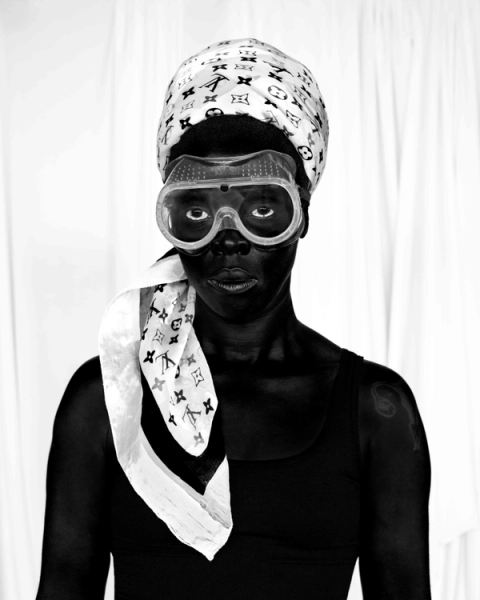
Zanele Muholi
Gqamile, Durban, 2019Baryta print
Image and paper size: 27.6 x 22 in. | 70 x 56 cm
Edition of 8, 2AP
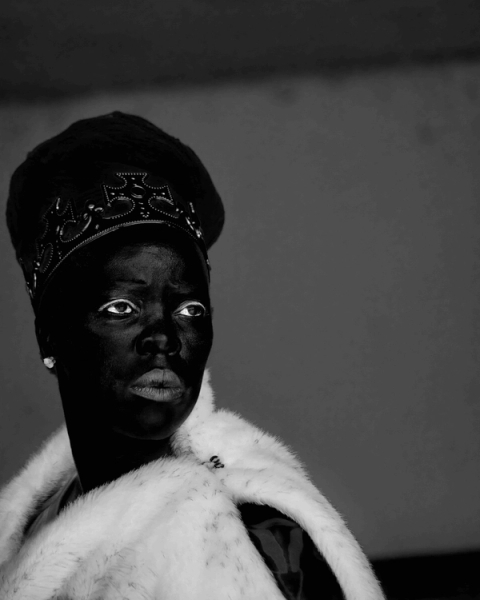
Zanele Muholi
Hawu III, Adams Mission, KwaZulu-Natal, 2020Baryta print
Image and paper size: 31.5 x 25.2 in. | 80 x 64 cm
Edition of 8, 2AP
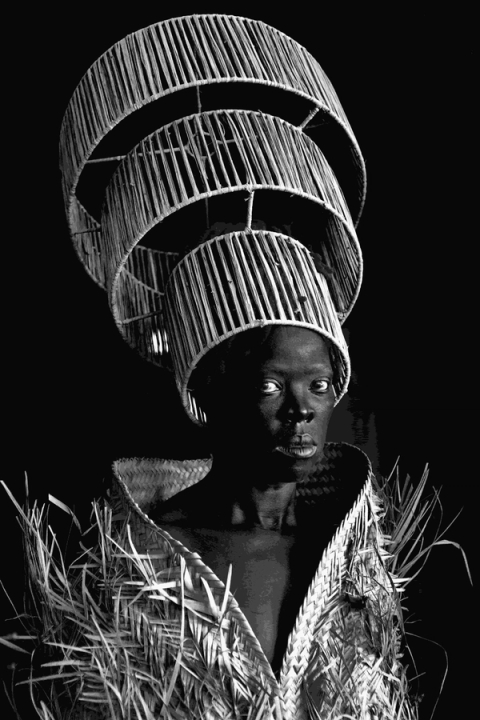
Zanele Muholi
Ziphi IV, Cape Town, 2020Baryta print
Image and paper size: 36.2 x 24.4 in. | 90 x 60 cm
Edition of 8, 2AP
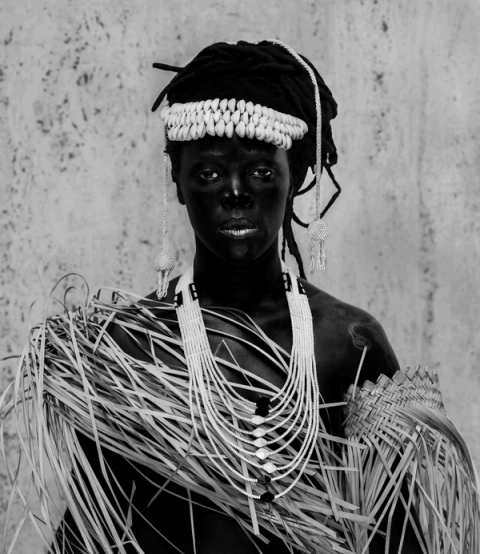
Zanele Muholi
Ziphi II, Emhlabeni, 2019Baryta print
Image and paper size: 23.6 x 20.5 in. | 60 x 52 cm
Edition of 8, 2AP
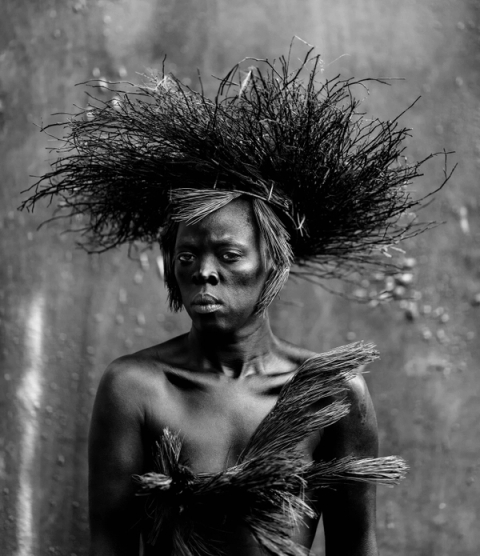
Zanele Muholi
Isiqhaza II, Philadelphia, 2018Baryta print
Image and paper size: 31.5 x 27.2 in. | 80 x 69 cm
Edition of 8, 2AP
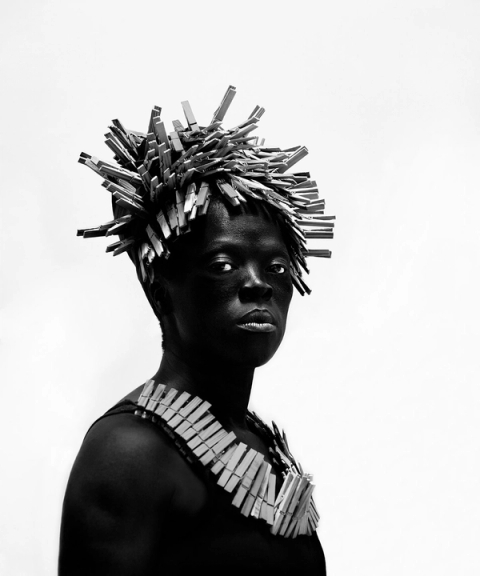
Zanele Muholi
Bester II, New York, 2019Baryta print
Image and paper size: 19.6 x 23.6 in. | 50 x 60 cm
Edition of 8, 2AP
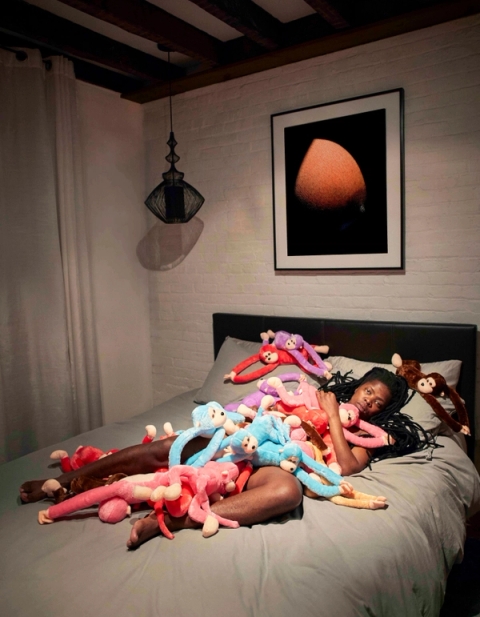
Zanele Muholi
Nkamisa, Brooklyn, New York, 2019Baryta print
Image and paper size: 35.4 x 27.6 in. | 90 x 70 cm
Edition of 8, 2AP
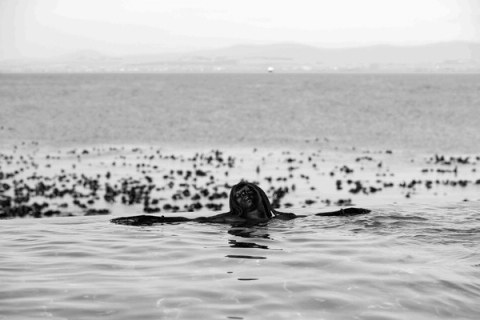
Zanele Muholi
Manzi II, Waterfront, Cape Town, 2022Baryta print | Wallpaper
Variable - please enquire
Edition of 8, 2AP
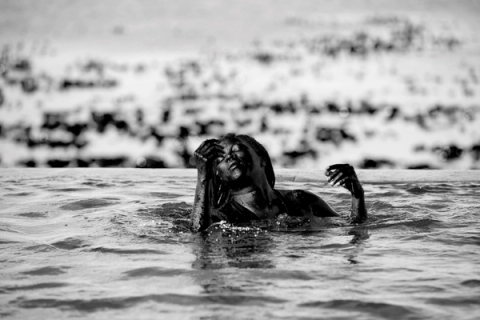
Zanele Muholi
Manzi III, Waterfront, Cape Town, 2022Baryta print
Image and paper size: 23.6 x 35.4 in. | 60 x 90 cm
Edition of 8, 2AP

Zanele Muholi
Manzi IV, Waterfront, Cape Town, 2022Baryta print
Image and paper size: 23.6 x 35.4 in. | 60 x 90 cm
Edition of 8, 2AP
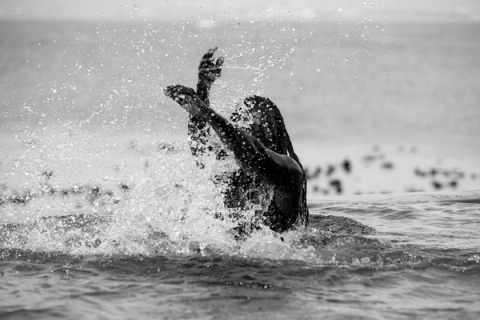
Zanele Muholi
Manzi V, Waterfront, Cape Town, 2022Baryta print
Image and paper size: 23.6 x 35.4 in. | 60 x 90 cm
Edition of 8, 2AP
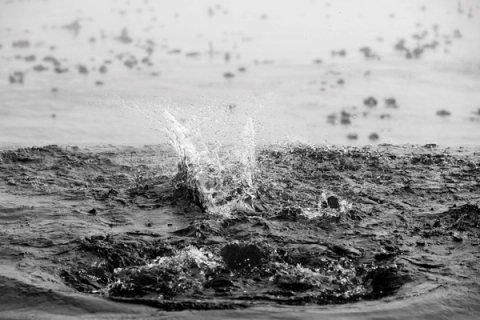
Zanele Muholi
Manzi VI, Waterfront, Cape Town, 2022Baryta print
Image and paper size: 23.6 x 35.4 in. | 60 x 90 cm
Edition of 8, 2AP

Zanele Muholi
Manzi VII, Kraaibaai, Cape Town, 2022Baryta print
Image and paper size: 23.6 x 35.4 in. | 60 x 90 cm
Edition of 8 + 2 AP
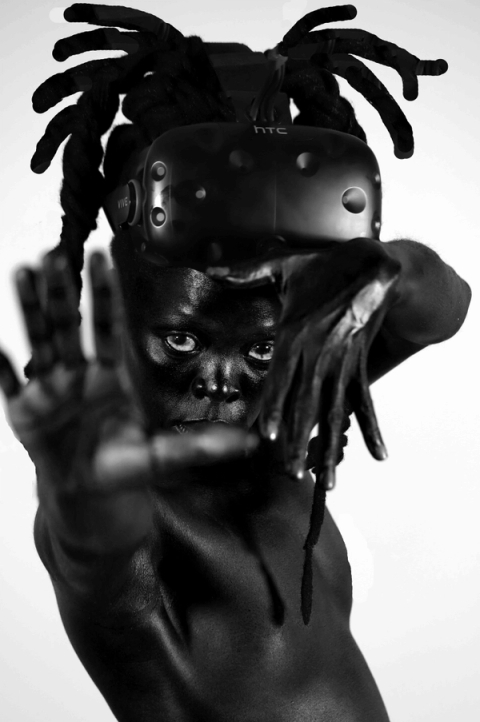
Zanele Muholi
Vezonakho I, TMWR Gallery, Rosebank, 2019Baryta print
Image and paper size: 29.9 x 19.9 in. | 76 x 50.5 cm
Edition of 8, 2AP
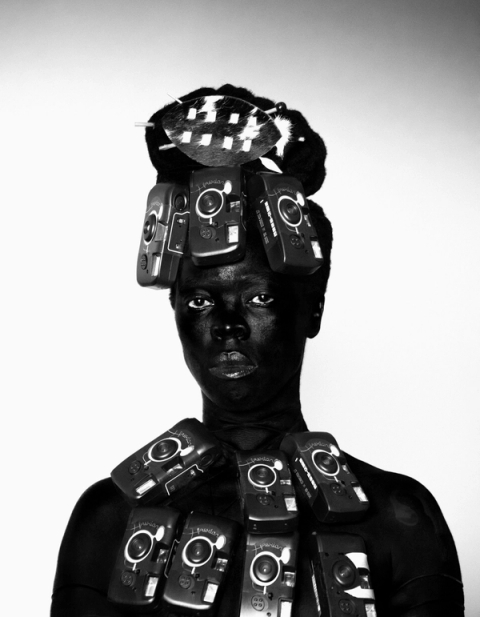
Zanele Muholi
Thathu II, The Sails, Durban, 2019Baryta print
Image and paper size: 35.4 x 27.6 in. | 90 x 70 cm
Edition of 8, 2AP
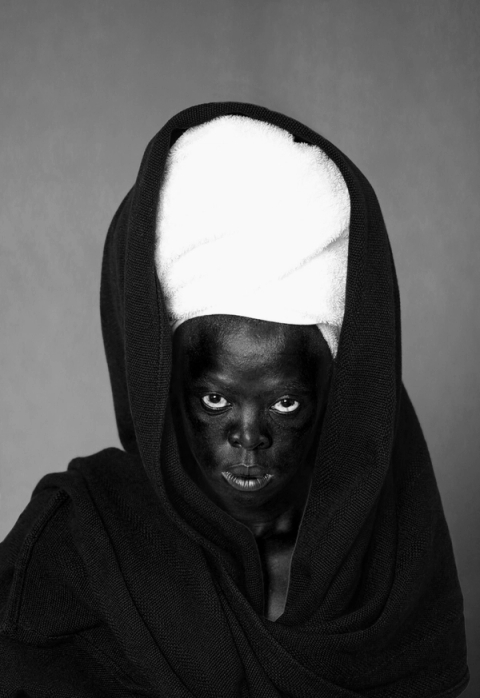
Zanele Muholi
Lahliwe V, Cape Sun, Cape Town, 2019Baryta print
Image and paper size: 23.6 x 21.6 in. | 60 x 55 cm
Edition of 8, 2AP
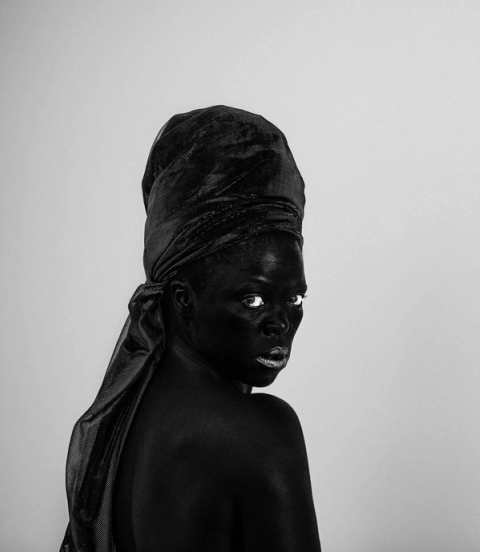
Zanele Muholi
MaZiqubu, ISGM, Boston, 2019Baryta print
Image and paper size: 19.6 x 17.1 in. | 50 x 43.5 cm
Edition of 8, 2AP








